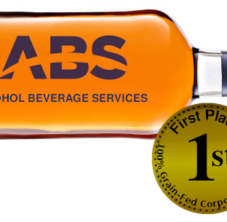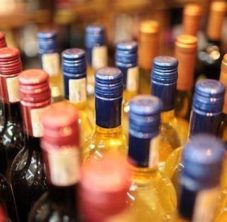In Part 1 of this series we introduced the county’s corporate liquor monopoly Alcohol Beverage Services, and in Part 2 we refuted every single claim ABS gives to justify its existence. In this installment we’ll provide an indication of who really does benefit from the county’s corporate liquor monopoly.
When we ask who benefits from the ABS monopoly, the answer is neither the retail consumer (you and me) nor the wholesale customers (caterers, wine and beer stores, bars, and restaurants). I interviewed two ABS customers for this series, and I cannot quote their responses a) because I promised anonymity and b) because of the overabundance of profanity in their responses. The common complaints were lack of inventory, inflexible delivery schedules, and no effort by a principal’s sales representative (such as Anheuser-Busch) to take an interest in the customer’s success.
A sample-size of two isn’t enough to draw a conclusion about customer satisfaction, but we can easily identify who does benefit from the ABS monopoly.
Before that, one word about the ABS’s employees. I had an invaluable opportunity to discuss with a source familiar with the ABS’s governing board. This source feels very confident that the ABS’s employees—administrative and operations—work with integrity and have a solid ethical compass. We occasionally read reports about rampant pilferage and drunken behavior on the job; let’s put aside all those unconfirmed accusations, and treat ABS employees with the respect that they deserve.
We’ll start with Kathie Durbin, Director of ABS. She made $220,000/year in 2021.
That base salary is a bit more than the fire chief’s base salary! We’ve already established that ABS is completely unnecessary, fire and rescue is completely necessary, so why does the ABS director make the same as the fire chief (a position which is currently vacant)?
Furthermore, is such a high salary justified? Travis Hill, CEO of Virginia’s statewide Alcohol Beverage Control monopoly, makes $203,000/year (less than Ms. Durbin) for managing an operation far more expansive than ABS.
ABS employees also benefit from the corporate monopoly, primarily in the form of contributions to retirement savings plans. None of the front-line employees are getting rich, but they have access to a county government pension plan, something that all of us in the private and federal sector have been denied for quite some time.
Another performance metric is how effective the ABS is in generating income for the county treasury. Here is a comparison for fiscal year 2022.
Virginia’s ABC generates more revenue for the treasury per dollar of sales than our ABS. Where is the ABS’s money going?
On the other hand, it seems like the ABS’s employees are more efficient than their Virginian counterparts. Again, for fiscal year 2022—
(These numbers are so discrepant that the data I’m using may not be correct.)
State and local liquor monopolies are exempt from federal and state income tax, so the remittance to the government is comparable to a private company’s pre-tax income. Here are pre-tax incomes of several large alcohol distributors as a percentage of gross income.
The pre-tax income in the private sector is higher than the equivalent percentage in a government-run concern. This is a sign that resources are being mismanaged by the monopolies.
In summary, as happens with any government-granted monopoly, the only people who benefit from ABS are workers, vendors, and sometimes (but not always) the government that granted the monopoly. Everybody else is spending time and money supporting them in return for goods and services of inferior quality.







